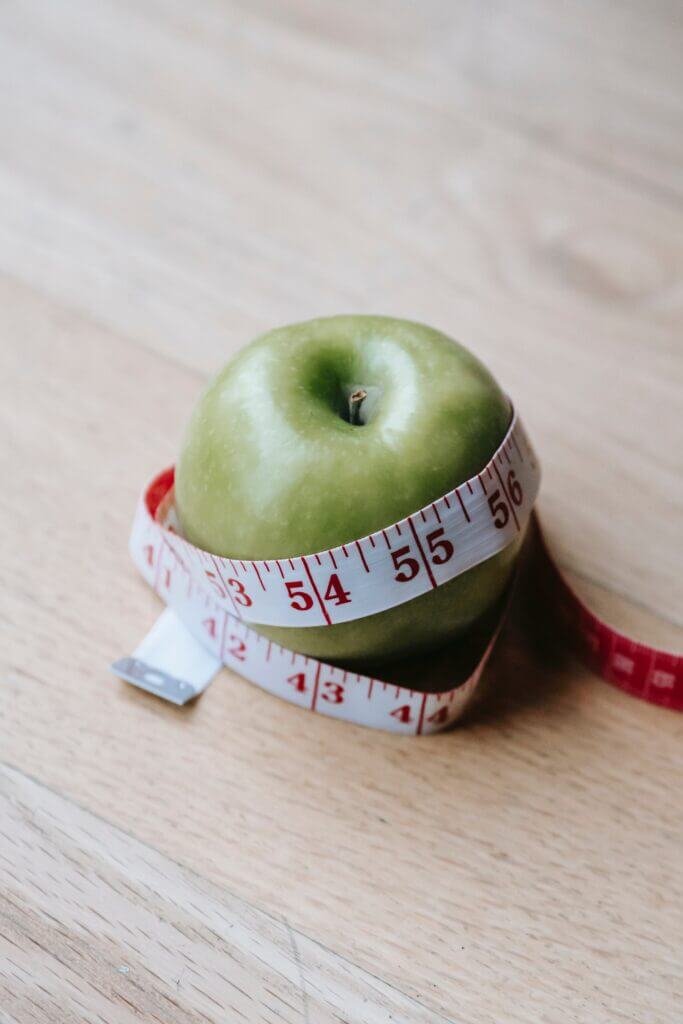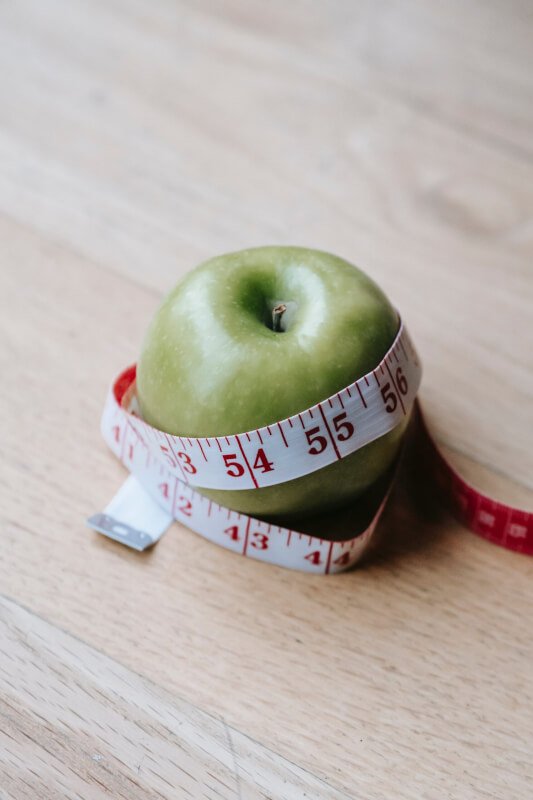Are you a Baby Boomer looking to shed some excess weight and improve your health? Look no further – this article has got you covered! In this insightful piece, we will explore the most effective strategies for Boomers to lose weight and achieve their fitness goals. From adopting a balanced diet to incorporating regular exercise into your daily routine, we’ll provide you with practical tips and guidance to help you on your weight loss journey. Say goodbye to those extra pounds and hello to a healthier, happier you!

The Importance of Weight Loss for Boomers
As a boomer, taking care of your health becomes even more crucial. One of the most important aspects of maintaining good health is weight management. Understanding the health risks associated with being overweight is the first step towards taking control of your well-being. Being overweight can increase the risk of developing chronic conditions such as heart disease, diabetes, and certain types of cancer. It can also lead to joint problems, sleep apnea, and decreased mobility. By shedding those extra pounds, you can significantly reduce your risk of these health concerns and enjoy a better quality of life in your golden years.
Understanding the Health Risks of Being Overweight
Being overweight can have serious implications for your health. Excess weight puts additional strain on your heart, leading to an increased risk of heart disease and high blood pressure. It can also contribute to the development of type 2 diabetes, as it impairs the body’s ability to regulate blood sugar levels. Furthermore, carrying excess weight can increase the risk of certain types of cancer, including breast, colon, and pancreatic cancer. By understanding these risks, you can take the necessary steps to prioritize weight loss and mitigate these potential health issues.
The Benefits of Weight Loss for Boomers
Losing weight as a boomer can bring about a myriad of benefits. Firstly, weight loss can improve your overall cardiovascular health by lowering blood pressure and cholesterol levels. This, in turn, reduces the risk of heart disease and stroke. Secondly, shedding excess pounds can alleviate joint pain and discomfort, making it easier for you to move around and engage in physical activities. Additionally, losing weight can improve your energy levels and enhance your mood, leading to a more positive outlook on life. Lastly, achieving a healthy weight can boost self-confidence and body image, promoting a greater sense of well-being. These benefits make weight loss a worthwhile pursuit for boomers looking to enhance their overall health and happiness.
Creating a Healthy Eating Plan
When it comes to weight loss, a healthy and balanced eating plan is essential. It is important to meet your nutritional needs while reducing caloric intake to create a calorie deficit and promote weight loss. Start by incorporating plenty of fruits and vegetables into your diet. These nutrient-rich foods are low in calories and high in fiber, helping you feel full and satisfied while still providing essential vitamins and minerals. Additionally, choosing lean proteins such as chicken, turkey, fish, and beans can aid in weight loss and muscle preservation. It is also important to limit processed and sugary foods, as these can contribute to weight gain and increase the risk of chronic diseases. Practice portion control by listening to your body’s hunger and fullness cues and avoid eating mindlessly or excessively. By creating a healthy eating plan, you can nourish your body while effectively managing your weight.

Staying Active and Fit
Regular physical activity is crucial for weight loss and overall well-being. Engage in activities that you enjoy and suit your individual abilities and interests. This could be walking, swimming, dancing, or even gardening. Aim for at least 150 minutes of moderate-intensity aerobic exercise per week, along with strength training exercises twice a week to maintain muscle mass. Incorporating strength training helps increase metabolism, burns calories, and promotes bone health. To stay motivated and make exercise more enjoyable, consider finding an exercise buddy or joining a group class. This social aspect can provide accountability and encouragement, making it easier to stick to your exercise routine. Remember, making physical activity a daily habit will not only help you lose weight but also improve your overall fitness and well-being.
Building a Support System
Embarking on a weight loss journey can be easier and more successful with the support of others. Sharing your goals and challenges with family and friends can provide encouragement and accountability. Consider joining weight loss support groups where you can connect with like-minded individuals who understand the struggles and triumphs of losing weight. These groups can provide valuable advice, motivation, and a sense of community. Another option is to work with a registered dietitian or nutritionist who can provide personalized guidance and support tailored to your specific needs and goals. Additionally, utilize technology and mobile apps that offer tools for tracking your progress, providing meal plans, and offering support through online communities. Building a support system ensures that you have the guidance and encouragement needed to achieve your weight loss goals.

Practicing Mindful Eating
Mindful eating involves developing an awareness of your hunger and fullness cues, as well as savoring the flavors and textures of the food you consume. It helps you establish a healthier relationship with food and prevents overeating. Pay attention to your body’s natural signals of hunger and fullness before, during, and after meals. This can help you make conscious choices about when to eat and when to stop, rather than relying on external cues or emotions. Eating slowly and taking the time to enjoy each bite allows your brain to register that you are satisfied, reducing the likelihood of overeating. Avoid distractions such as television or electronic devices while eating, as they can lead to mindless eating. By practicing mindful eating, you can develop a healthier approach to food and better control your weight.
Managing Stress and Emotional Eating
Stress and emotions can often lead to unhealthy eating habits and weight gain. It is essential to identify triggers for emotional eating and develop healthy coping mechanisms to manage stress effectively. Find alternative ways to deal with stress, such as engaging in physical activity, practicing relaxation techniques like meditation or deep breathing, or pursuing hobbies that bring you joy. These activities can help redirect your focus and provide a sense of fulfillment without turning to food for comfort. If emotional eating becomes a persistent issue that you are unable to manage on your own, consider seeking professional help from a therapist or counselor who specializes in emotional eating and stress management. Taking care of your emotional well-being is just as important as managing your physical health when it comes to weight loss.

Getting Enough Sleep
Sleep plays a vital role in weight management and overall health. Lack of sleep or poor quality sleep can disrupt the hormones that regulate hunger and fullness, leading to increased appetite and cravings for high-calorie foods. It can also affect metabolism and decrease energy levels, making it more challenging to engage in physical activity. Establishing a consistent sleep schedule and prioritizing quality sleep is crucial. Create a relaxing bedtime routine that helps signal to your body that it is time to wind down, such as reading a book, taking a warm bath, or practicing relaxation techniques. Avoid stimulants like caffeine and electronics before bed, as they can interfere with sleep quality. By getting enough sleep, you can support your weight loss efforts and overall well-being.
Tracking Progress and Setting Realistic Goals
Keeping track of your progress is essential to monitor your weight loss journey effectively. Keep a food and activity journal to record what you eat, how much you eat, and your exercise routine. This can help you identify patterns, make adjustments, and stay accountable to your goals. Additionally, regularly monitor your weight and measurements to track changes and progress over time. Celebrate your achievements along the way, whether it’s reaching a specific weight loss milestone or implementing a new healthy habit. Setting small, achievable goals allows you to maintain motivation and build confidence as you work towards your desired weight. However, it is important to adjust your goals as needed based on your individual progress and any health recommendations to ensure realistic and sustainable weight loss.

Incorporating Lifestyle Changes
Weight loss is not just about diet and exercise; it is about adopting long-term lifestyle changes that promote overall health and well-being. When eating out, make healthier choices by selecting dishes with lean protein, vegetables, and whole grains, and avoiding fried or overly processed foods. Reduce sedentary behavior by incorporating more movement into your daily routine, such as taking regular breaks from sitting, using stairs instead of elevators, or walking instead of driving for short distances. Limit alcohol consumption, as it can add empty calories and hinder weight loss progress. Focus on making sustainable changes that can be maintained in the long run, rather than relying on quick-fix solutions. By incorporating these lifestyle changes, you can create a healthy and balanced lifestyle that supports weight loss and overall good health.
Consulting with Healthcare Professionals
Before embarking on any weight loss program, it is essential to seek medical guidance from your healthcare professional. They can assess your individual health conditions and medications and provide personalized advice tailored to your needs. Your healthcare professional can guide you on safe and effective strategies for weight loss, taking into account any potential interactions with your existing medical conditions or medications. They may also recommend additional tests or referrals to specialists, such as a registered dietitian or nutritionist, to provide further support and guidance. Considering the benefits of professional supervision and guidance is crucial to ensure the safety and efficacy of your weight loss efforts.
Taking the initiative to lose weight as a boomer is a proactive step towards improving your overall health and well-being. By understanding the health risks associated with being overweight, creating a healthy eating plan, staying active and fit, building a support system, practicing mindful eating, managing stress and emotional eating, getting enough sleep, tracking progress and setting realistic goals, incorporating lifestyle changes, and consulting with healthcare professionals, you can embark on a successful weight loss journey. Remember, weight loss is not an overnight process, but with determination, support, and healthy habits, you can achieve and maintain a healthier weight, ensuring a vibrant and fulfilling life as a boomer.


